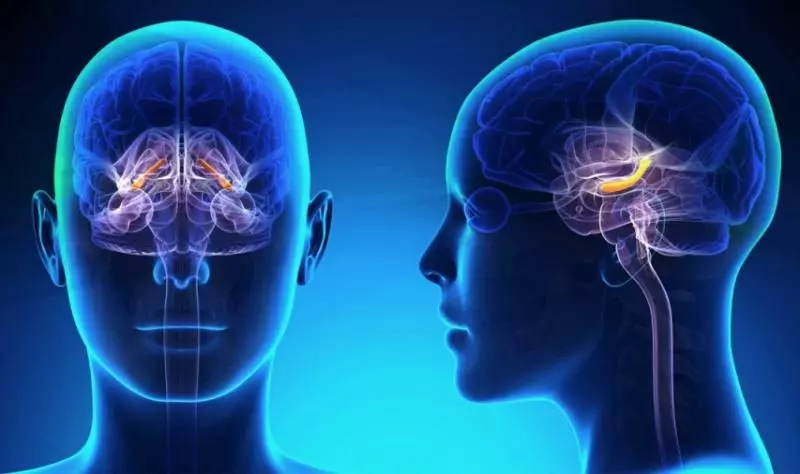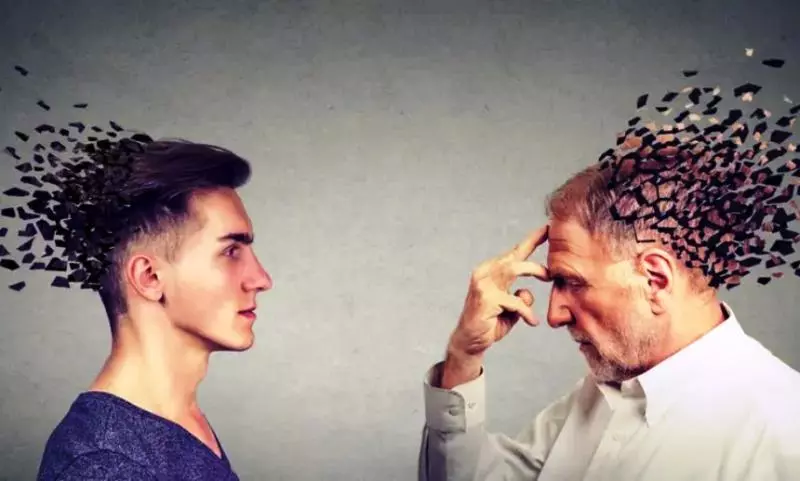“Doctor, what can you tell me for memory? Lately I forget everything… Could it be that I have Alzheimer’s?” With this question, many people come to the psychiatric consultation.
The keys, the cell phone, an appointment, what you had to buy in the supermarket… I can’t find the agenda, where I left my glasses, what I had in the oven burned, I have his name on the tip of my tongue, but gee I don’t remember it… and so many of us lose and forget things several times a day.
But how do you know when it is a mistake due to mere distraction and when it is an incipient health problem?
For most of them, it is enough to ask a few simple questions, or use some scanning techniques, to rule out what they consider to be a complicated health problem. The greatest fear they have is to present dementia or another important pathological process of the Central Nervous System.
It is necessary to know that memory disorders can occur due to different causes, Alzheimer’s, and dementia in general, perhaps constitute the most dramatic and severe cause, but not the only one.
There are other reasons why certain memory failures may occur, such as exhaustion, stress, anxiety, depression and adjustment disorders in the face of conflictive life situations that cause certain imbalances and symptoms.
In many ways, our memories make us who we are, they are a fundamental part of our essence. What would a human being be without memories? But for these to last we need memory, a concept that, despite being men. Despite being mentioned by everyone, we do not know in depth. In this article I will try to explain as precisely as possible about this higher psychic process.
Memory is the mental capacity that allows us to fix, preserve and evoke, that is, remember, information from situations that the subject perceives as belonging to the past. In addition to these processes, memory has another function that is necessary for it: forgetting.
It is a function of the brain that is essential for our learning and, therefore, for our survival. Thanks to it we can better adapt to the needs of our environment. It refers to a mental capacity whose function is to encode, store and retrieve information. In other words, it allows us to store experiences, feelings, events, images or ideas. In short, any element that belongs to our past.
From a morphological point of view, memory is closely related to the hippocampus, but it should be noted that there are several regions of the brain that influence the process. It is interesting to mention that the meaning of words is stored in the right cerebral hemisphere, childhood memories are preserved in the temporal cortex, while the frontal lobes take over perception and thought.
There are three different forms of memory: immediate, short-term, and long-term.
· Immediate memory is the one that allows information to be preserved for a short period of time. This memory briefly stores the vast majority of experiences without any type of elaboration. It is greatly affected by attention and level of consciousness. That is, if we do not actively attend to what we do or are told, we will not be able to remember it easily.
- Short-term memory is a process subsequent to immediate memory that requires some elaboration of information. It can retain the memory for up to thirty seconds before it is lost. After this time, the information is stored in a more stable memory… or forgets. The capacity of short-term memory is limited. When the elements to be remembered are organized in the form of words, phrases or musicality, the ability to remember is considerably increased. Information can be retained unlimitedly if we repeat it successively. This is what we do when we try to remember a phone number before writing it down in the address book.
- · Long-term memory is the store where information is collected in a more permanent and stable way. In it, forgetting is slower and more progressive, but it is not non-existent. Long-term memory storage is not a passive process, information tends to be simplified and distorted it tends to simplify and distort with the passage of time and the action of our emotions. In general, aversive or negative experiences are minimized and positive ones are maximized.
In long-term memory, three types of basic information are distinguished
1- Episodic memory: This refers to the type of information stored in long-term memory when it has to do with our own personal experience. It is especially linked to time and space. Remembering what we ate yesterday is part of episodic memory.
2- Procedural memory: This refers to the type of information stored in long-term memory when it has to do with abstract memory to which we do not have conscious access, as a general rule. Remembering the way a bicycle is ridden, after a certain time, depends on procedural memory.
3- Semantic memory: It refers to the type of information stored in long-term memory when it has to do with abstract and Timeless. Remembering the definition of a concept depends on semantic memory.
There is a brain structure essential for memorization formed by the medial temporal cortex, and especially by the hippocampus, so called because it is shaped like a seahorse, and the diencephalon, specifically the thalamus.

Of course, learning processes are intimately related to the ability to memorize. Keep in mind that learning is the process of acquiring new information, while memory refers to the persistence of learning, that is, it is a relatively permanent state that can be revealed at a later time.
Sometimes we forget certain things such as a person’s name or the place where we have left the mobile phone. Many times they are mere absent-mindedness, but if the frequency of these events increases, it may be a symptom of cognitive impairment.
Fortunately, we can improve the functioning of our memory through training. If you exercise frequently, it is possible to enhance it and even prevent its deterioration.
That’s very good news for those who worry about their amnesiac gaps. Problems with memory, depending on their causes, can be improved and also disappear, so that you can remember again easily. There are various techniques and exercises to keep this mental function in shape that we all want to preserve. I will tell you about them in a future meeting between The Psychiatrist and You.
By: Israel Manuel Fagundo Pino / Translated by Radio Angulo
- A Guide to Improving Our Mental Health - 16 de January de 2026
- How to Make Your New Year’s List - 5 de January de 2026
- Artificial Intelligence: The Challenge of Continuing to Think - 25 de December de 2025

